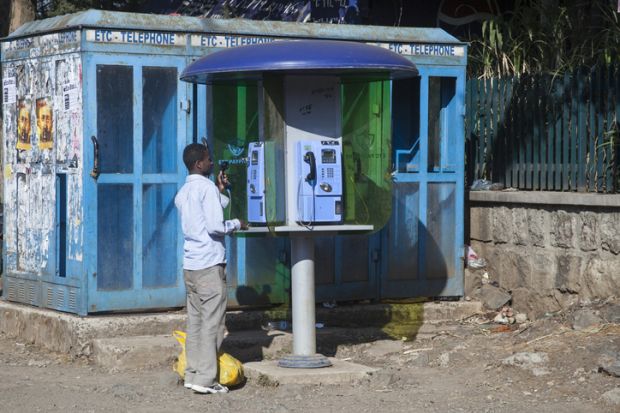Poor access to broadband and the internet has already been something identified as hampering the ability of students and universities in the developing world to respond to the Covid-19 pandemic.
But new findings from a survey by the Association of Commonwealth Universities now suggests that this “digital divide” may also be just as prevalent between leaders and rank-and-file academics within institutions in poorer nations.
According to the survey, which mainly received responses from students and staff in universities in lower-income nations in Africa and Asia, senior leaders were far more likely to have access to broadband (74 per cent) than academics (38 per cent) and students (30 per cent).
They and professional services staff were also more than twice as likely (82 per cent compared with 40 per cent) as academics to say that they received support for working remotely, such as a contribution to the cost of devices.
Senior leaders were also less likely than academics to cite data costs (48 per cent compared with 68 per cent) and internet speed (63 per cent compared with 74 per cent) as challenges to remote working.
In a policy briefing accompanying the results of the survey, the ACU says that the disparities in digital engagement seen within institutions, when added to those already identified between high- and low-income nations, created a “double digital divide”.
“The expansion of online learning in response to the pandemic, and the huge challenges that came with it, present a window of opportunity – not only to use the lessons learned to build stronger, more resilient institutions, but also to widen access to higher education,” it says.
“However, the survey confirms that this potential will only be realised if governments and institutions take swift action to ensure no one is left behind in the shift online.”
The survey – which received about 250 responses from 33 different countries during May – also emphasised the size of the differences in digital access between the richest and poorest nations.
Just 38 per cent of respondents from lower-middle income countries and 19 per cent from low-income nations said they had access to broadband, compared with 63 per cent for upper-middle income countries and 83 per cent for high-income nations. Those reporting that their institutions had not been able to move any teaching and learning online were also based exclusively in low- and lower-middle income countries.
However, one positive result from the survey was that the shift online may have boosted perceptions of digital teaching and learning, with 81 per cent agreeing that quality had improved since the start of the pandemic.
Register to continue
Why register?
- Registration is free and only takes a moment
- Once registered, you can read 3 articles a month
- Sign up for our newsletter
Subscribe
Or subscribe for unlimited access to:
- Unlimited access to news, views, insights & reviews
- Digital editions
- Digital access to THE’s university and college rankings analysis
Already registered or a current subscriber? Login





